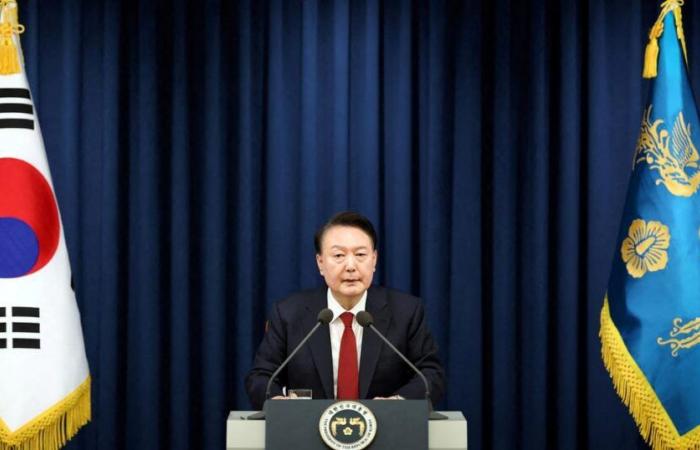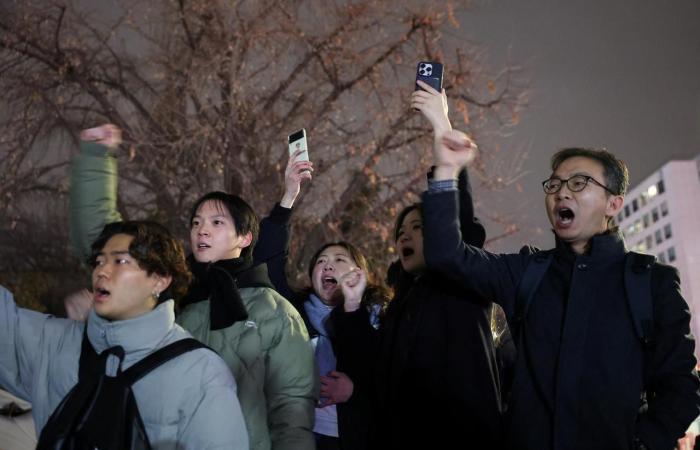South Korean President Yoon Suk Yeol declared martial law Tuesday, saying the measure was necessary to protect the country from “North Korean communist forces.” He subsequently accused the opposition parties of having taken the parliamentary process hostage. They called for demonstrations in front of Parliament.
“To protect liberal South Korea from threats posed by North Korean communist forces and eliminate elements hostile to the state… I declare emergency martial law,” Yoon Suk Yeol said live on a surprise televised speech.
The head of state, however, did not cite a specific threat from nuclear-armed North Korea, focusing instead on his domestic political adversaries.
“Without concern for the livelihood of the people, the opposition party has paralyzed the government, for the purposes of impeachments, special investigations and to protect its leader from legal prosecution,” the president said.
Parliament placed under seal
This decision caused a shock wave in the country, which has not experienced martial law since 1980 and whose regime is considered democratic. The Korean won fell sharply against the US dollar in its wake.
Martial law allows military authorities to take control of certain civilian functions in order to maintain public order and ensure national security. It may, for example, give rise to the establishment of a curfew or the deployment of armed forces.
Following the announcement of the establishment of martial law, the South Korean Parliament was placed under seal, according to the South Korean news agency Yonhap and helicopters landed on its roof in Seoul.
The military, cited by South Korea’s Yonhap news agency, later announced some of the measures it had put in place, including banning the activities of parliament and political parties, while media and publishers come under surveillance. control of the command responsible for the application of martial law.
Internal rivalries
The surprise intervention comes as Yoon Suk Yeol’s People Power Party continues to battle with the main opposition Democratic Party over next year’s proposed budget. Opposition MPs approved a significantly reduced budget program last week through a committee.
“Our National Assembly has become a refuge for criminals, a den of legislative dictatorship that seeks to paralyze the administrative and judicial systems and overthrow our liberal democratic order,” said Yoon Suk Yeol, who accused opposition lawmakers of cut “all budgets essential to the primary functions of the nation which are the fight against drug-related crimes and the maintenance of public security (…) transforming the country into a drug paradise and a place of chaos for public safety.
Yoon Suk Yeol went on to call the opposition, which holds a majority in Parliament, “forces hostile to the state intending to overthrow the regime.” He assured that his decision was “inevitable”. “I will restore normalcy to the country by getting rid of these anti-state forces as soon as possible,” added the South Korean president.
“Tanks, armored personnel carriers and soldiers armed with guns and knives will rule the country,” denounced Lee Jae-myung, leader of the Democratic Party, during a speech broadcast online. “The economy of the Republic of Korea will collapse irreparably. My dear citizens, come to the National Assembly,” he urged. “The illegal imposition of martial law by President Yoon Suk Yeol is invalid,” he further denounced.
Hundreds of people flocked to parliament on Wednesday morning (Tuesday afternoon in Switzerland) to protest, according to images broadcast live on television.
juma/boi with agencies







